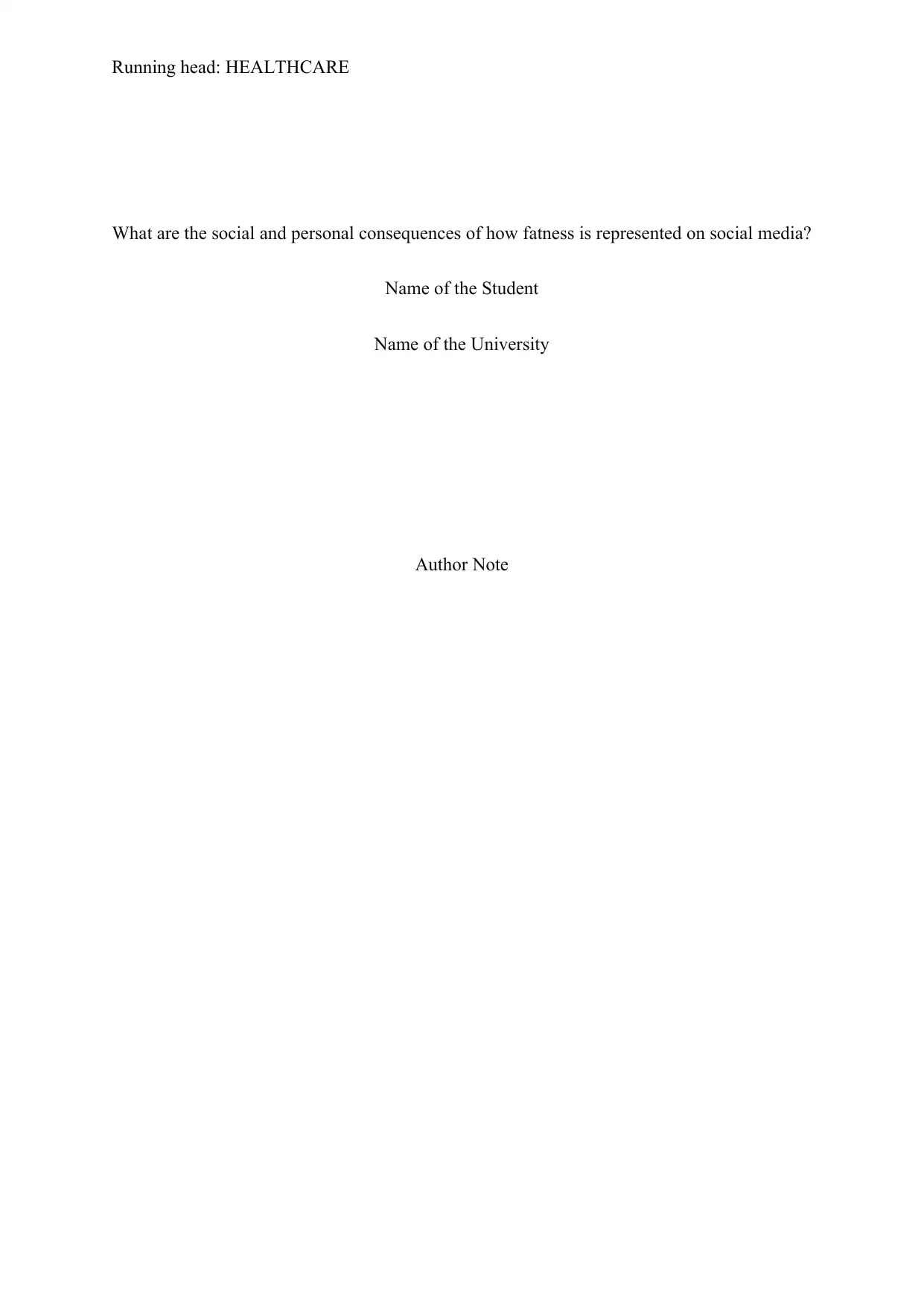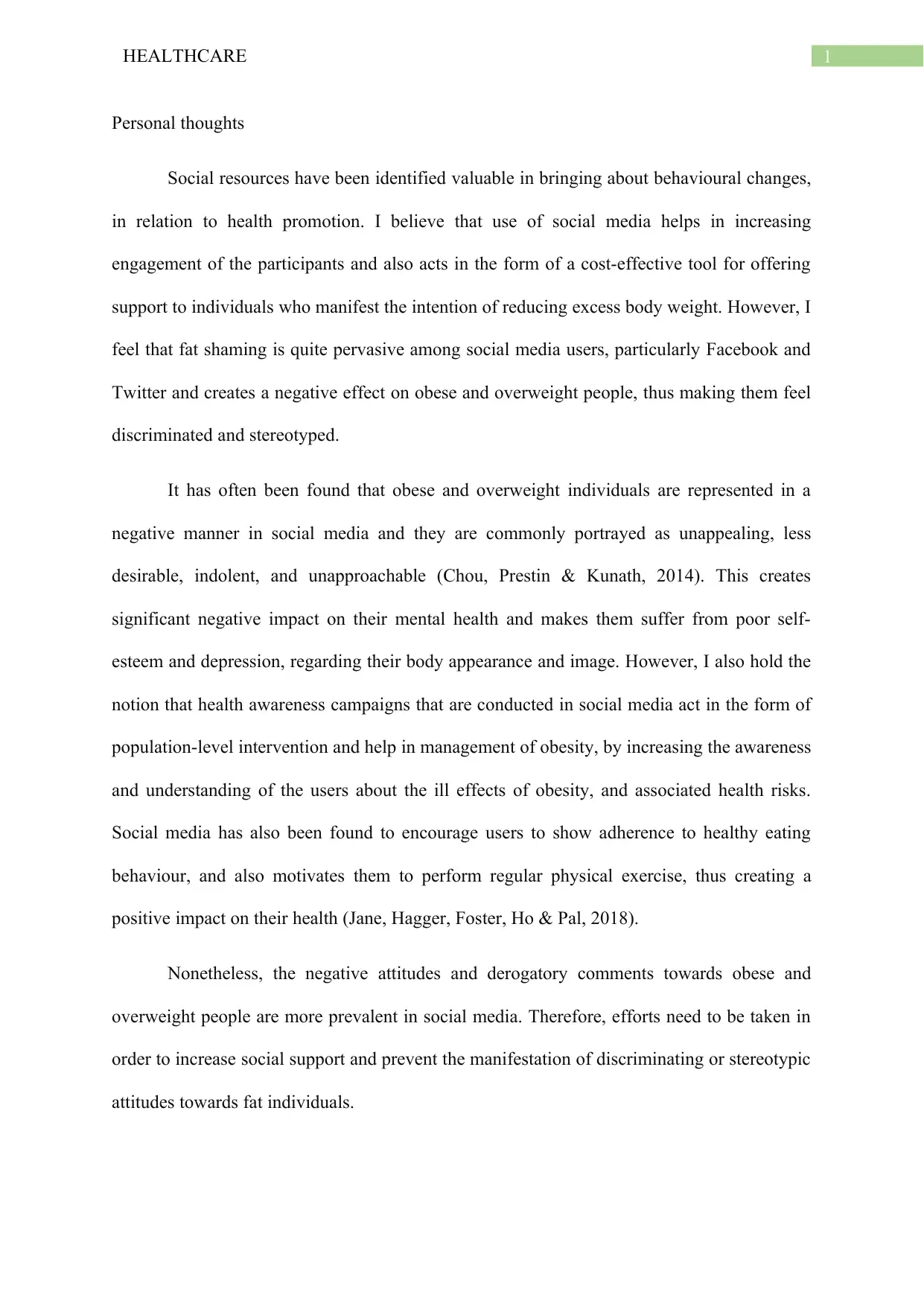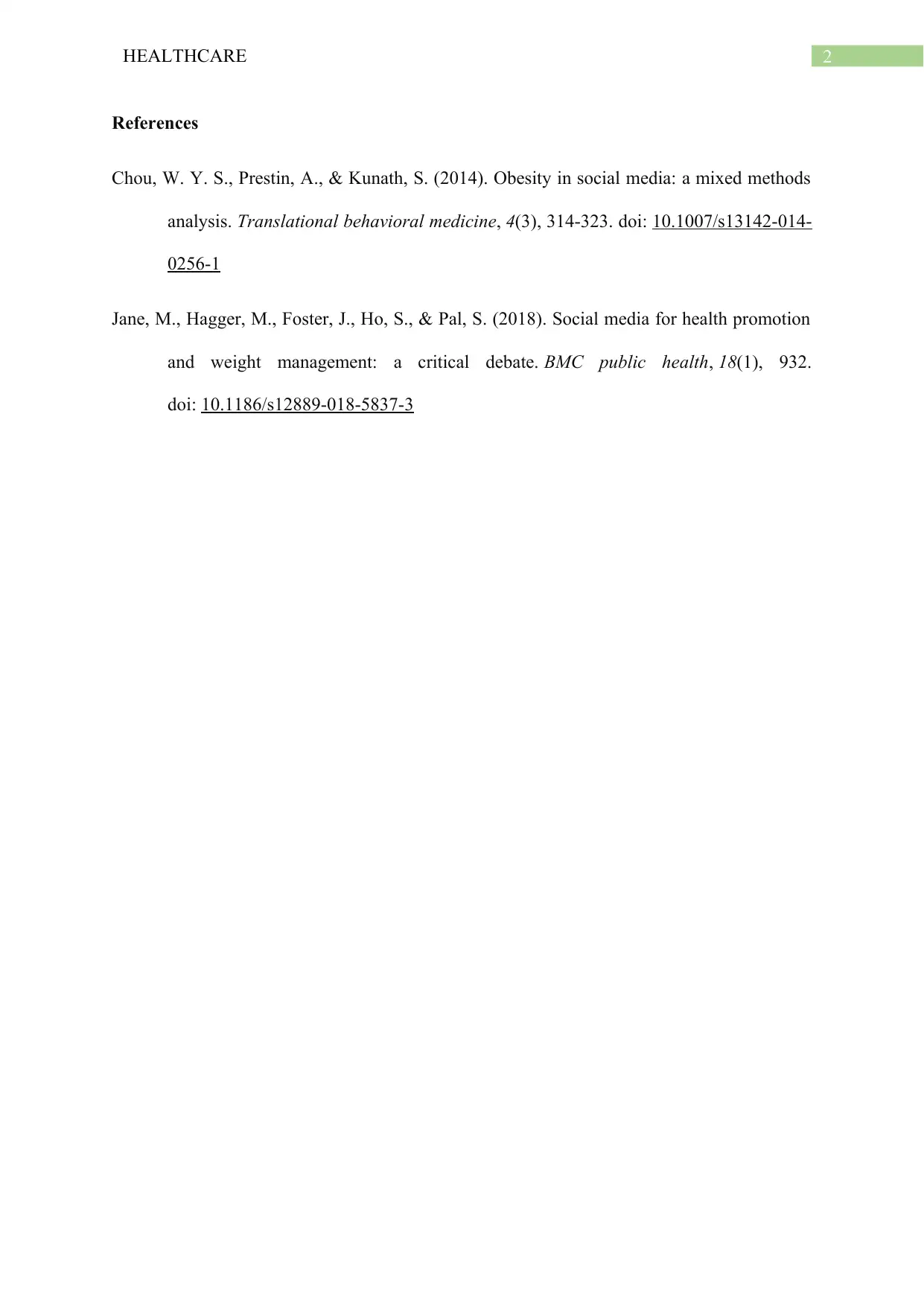Social and Personal Consequences of Fatness on Social Media
VerifiedAdded on 2022/10/01
|3
|440
|84
Report
AI Summary
This report delves into the social and personal consequences of how fatness is represented on social media platforms. The author, a student at the University, examines the impact of negative portrayals, fat shaming, and stereotypical representations of overweight and obese individuals. The report highlights the negative effects on mental health, including poor self-esteem and depression, while also acknowledging the potential of social media for health promotion through awareness campaigns and encouragement of healthy behaviors. The author emphasizes the need for increased social support and the prevention of discriminatory attitudes towards fat individuals, drawing on research to support their arguments and personal reflections.
1 out of 3





![[object Object]](/_next/static/media/star-bottom.7253800d.svg)